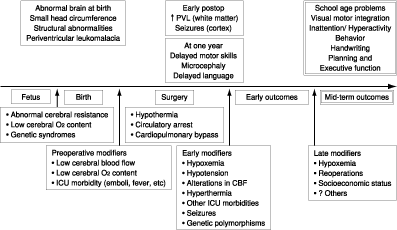| 招請講演 3 |
How can we improve the long-term neurodevelopmental and functional outcomes after pediatric cardiac surgery? |
| The Children's Hospital of Philadelphia, Pennsylvania, USA Gil Wernovsky |
Advances in prenatal detection, perioperative management and cardiothoracic surgical techniques have contributed to a significant increase in the number of children with complex congenital cardiac disease entering preschool and beyond. As initial survival has increased, and indeed is now expected for most forms of congenital cardiac disease, greater attention has been directed toward understanding the longer-term neurodevelopmental and functional outcomes of this growing patient population. Studies have shown that children with complex CHD requiring surgery in early infancy have an increased incidence of fine and gross motor delays, academic and behavioral difficulties, and inattention/hyperactivity; they are also more likely to have executive planning deficits, delays in expressive language, and lower than expected scores on standardized intelligence quotient (IQ) tests. The figure demonstrates the multiple factors that may impact upon mid-term neurological outcomes, including both modifiable and non-modifiable risk factors. There has been great interest of late to focus on the operating room as the most likely source of central nervous system injury that is modifiable, including the conduct of cardiopulmonary bypass in general and the use of deep hypothermic circulatory arrest in particular. All too often, well-meaning clinicians have made major changes in clinical practice - such as the widespread use of continuous cerebral perfusion during neonatal arch reconstruction - without adequate clinical trials or registry data to suggest improvement with the alternative strategies. Inadequate attention has been paid to the potential morbidities in the intensive care unit, both preoperatively and postoperatively, which may be modifiable and have a significant impact on longer term function. Well designed trials, including tracker trials and randomized clinical trials, as well as registry data which includes systematic long-term cardiac and neurodevelopmental follow-up, is a paradigm shift which should be adopted locally and endorsed by national and international societies.
 |
戻る |